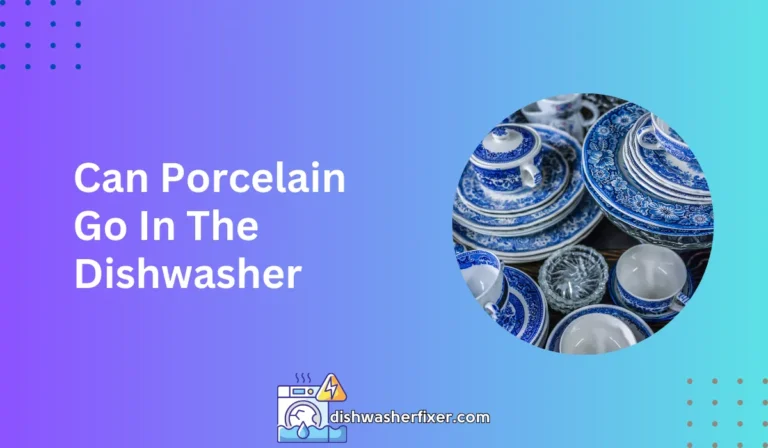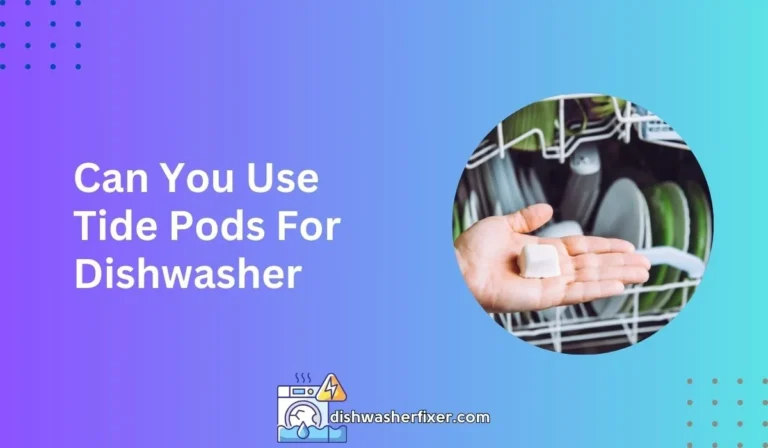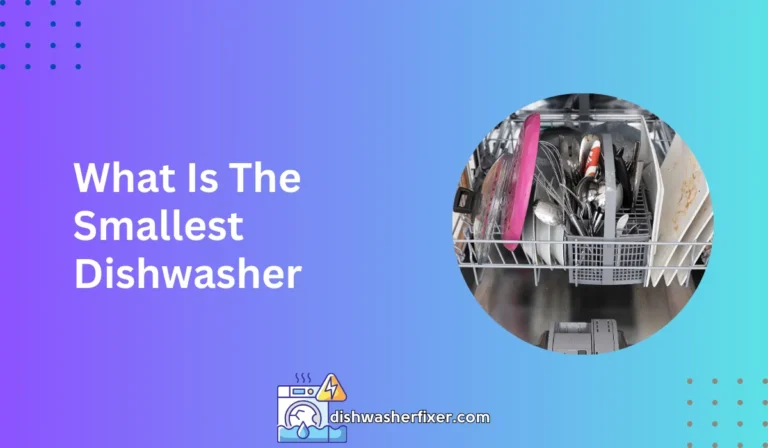Can You Use Dishwasher Detergent for Laundry? Surprising Tips!
No, you should not use dishwasher detergent for laundry. Dishwasher detergents are formulated for dishware and can damage clothing fibers and washing machine components. It’s important to use the correct detergent type for laundry to ensure effective and safe cleaning.
Understanding the Differences Between Dishwasher Detergent and Laundry Detergent

Chemical Composition of Dishwasher Detergent
Dishwasher detergents are crafted to tackle the tough grease and food residues that can be found on dishes and cookware.
They often contain strong alkaline chemicals, such as sodium carbonate and phosphate salts, which work to break down stubborn food particles.
Additionally, these detergents are formulated to perform well in the high temperatures of dishwashers without creating suds, which could impede the machine’s function.
Chemical Composition of Laundry Detergent
Laundry detergents, on the other hand, are designed to be gentler on fabrics. They commonly include surfactants that lift soil from clothes, enzymes that break down proteins and starches in stains, and fabric softeners that ensure clothes come out feeling soft.
Unlike dishwasher detergents, laundry detergents are meant to work in a broader range of temperatures and water conditions.
Formulation Purposes: Abrasiveness of Dishwasher Tablets/Powders vs. Fabric-Safe Laundry Detergents
Dishwasher tablets and powders are intentionally abrasive to scrape away food debris. This abrasiveness, however, can be harsh on clothing fibers, leading to damage over time.
Laundry detergents are formulated with ingredients that are safe for a wide variety of fabrics, ensuring they clean without causing harm.
Enzymes and Bleach Levels in Each Type of Detergent
The enzyme content in laundry detergent is specifically chosen to target protein-based stains, such as blood or grass, making them effective at cleaning clothes.
Dishwasher detergents may also contain enzymes, but in different types and quantities, suited to food residue.
Bleach is present in many dishwasher detergents to aid in stain removal and sanitization, whereas laundry detergents often use color-safe bleach to protect clothing colors.
Impact of Sudsing Agents in Laundry Detergents vs. Non-Sudsing Dishwasher Detergents
Sudsing agents are common in laundry detergents because they help in lifting soil from clothes.
In contrast, dishwasher detergents are non-sudsing since excessive foam can interfere with the mechanical action of the dishwasher and reduce cleaning efficiency. Using a sudsing detergent in a dishwasher can lead to malfunctions or even leaks.
Risks and Consequences of Using Dishwasher Detergent for Laundry

Potential Damage to Clothing Fibers
Using dishwasher detergent on clothing can lead to weakened fibers and a shortened lifespan for the garments.
The harsh chemicals in dishwasher detergents are not intended for the delicate nature of many fabrics and can cause them to break down over time.
Reaction of Dishwasher Detergent Ingredients with Fabric
The strong alkaline ingredients in dishwasher detergents can react negatively with fabrics, leading to color fading, staining, and overall deterioration of the material. This reaction can be especially damaging to more delicate fabrics like silk or wool.
The Risk of Excessive Foaming and Its Effects on Washing Machines
If dishwasher detergent is used in a washing machine, the lack of sudsing agents can lead to insufficient cleaning.
Conversely, if a laundry detergent with sudsing agents is mistakenly used in a dishwasher, it can cause excessive foaming, leading to potential leaks and damage to the machine’s internal components.
Possible Skin Irritation from Residues Left on Clothing
Dishwasher detergent may not rinse away as cleanly from fabrics as laundry detergent, leaving behind residues that can cause skin irritation or allergic reactions when the clothes are worn.
Long-term Effects on Washing Machine Performance and Maintenance Issues
Repeated use of dishwasher detergent in a washing machine can lead to long-term performance issues.
The abrasive nature of dishwasher detergent can cause wear and tear on the washing machine’s drum and plumbing, leading to costly repairs and maintenance.
Safe and Effective Alternatives to Dishwasher Detergent for Laundry

DIY Laundry Detergent Recipes Using Household Items
For those looking to avoid commercial detergents or facing an emergency, there are DIY laundry detergent recipes that can be made using common household items like baking soda, vinegar, and lemon juice.
These ingredients can clean clothes effectively without the harsh chemicals found in dishwasher detergent.
Recommendations for Mild, Fabric-Safe Detergents in Emergency Situations
In a pinch, you can use a mild, fabric-safe detergent, such as a gentle dish soap, for hand-washing clothes. These soaps are less aggressive than dishwasher detergents and can be more easily rinsed out of fabrics.
Tips for Hand-Washing Clothes Without Laundry Detergent
Hand-washing clothes with just water can sometimes do the trick, especially if the clothes are not heavily soiled. Rubbing clothes together in water can help dislodge light dirt and freshen them up for another wear.
The Importance of Maintaining Proper Detergent Use for Appliance Longevity
It’s crucial to use the correct type of detergent for your appliances, not just for effective cleaning but also to ensure the longevity of the appliances.
Using the intended detergent can prevent damage and extend the life of both dishwashers and washing machines.
Pointers for Purchasing Eco-Friendly and Multi-Purpose Detergents Suitable for Various Cleaning Tasks
When shopping for detergents, look for eco-friendly options that are biodegradable and free from harsh chemicals.
Some multi-purpose detergents are gentle enough for various tasks, from cleaning dishes by hand to laundering delicate fabrics, making them a versatile addition to your household cleaning supplies.
FAQs About Using Dishwasher Detergent for Laundry
Can dishwasher detergent be used as a laundry detergent substitute?
No, dishwasher detergent should not be used as a substitute for laundry detergent because it is not designed for washing clothes and can damage fabrics and washing machines.
What are the risks of using dishwasher detergent in a washing machine?
Using dishwasher detergent in a washing machine can lead to damaged clothing fibers, machine component malfunction, and residue buildup that could cause maintenance issues.
Will dishwasher detergent effectively clean clothes?
Dishwasher detergent is not formulated for cleaning clothes and may not effectively remove dirt or stains from fabrics as laundry detergent would.
Can I use dishwasher detergent for hand-washing clothes?
No, even for hand-washing, dishwasher detergent is not recommended for clothes as it can be harsh on fabrics and skin.
What should I do if I accidentally use dishwasher detergent in my laundry?
If dishwasher detergent is accidentally used in laundry, immediately rewash the clothes with the correct laundry detergent and run an empty wash cycle to clean the washing machine.
Final Thoughts
Using dishwasher detergent for laundry is inadvisable due to its specific formulation for dishware. Such detergents can harm clothing fibers and damage washing machine parts.
Therefore, for safe and effective cleaning, it is crucial to employ the proper detergent designed for laundry purposes.
Useful Resources
- https://news.wisc.edu/curiosities-whats-the-difference-between-dishwasher-detergent-laundry-detergent-and-dish-soap-why-arent-they-interchangeable/
- https://www.oregonmetro.gov/tools-living/healthy-home/common-hazardous-products/detergents-dishwashing-or-laundry
- http://www.fsis.usda.gov/food-safety/safe-food-handling-and-preparation/food-safety-basics/washing-food-does-it-promote-food





